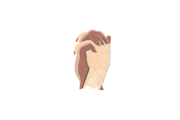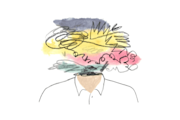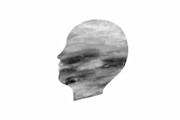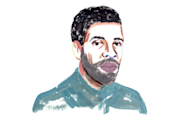Is it OK for men to go to therapy?
How do you know if a guy needs counseling?
Do men benefit from therapy?
Should more guys go to therapy?
How many men go to therapy?
Are men less likely to see a therapist?
How can I find a male therapist?
Why would a man need therapy?
How do I get a man to go to therapy?
Where can I find a male therapist?
While these questions may sound strange to those women and men who go to therapy or counseling, they're all real questions Americans are asking about men and therapy by typing them into Google's search box.

Are men seeking therapy?
Despite increased mental health awareness, advocacy from star athletes, and multi-million dollar campaigns to de-stigmatize mental illness, the myth that men and therapy do not mix still seems to loom large.
When a dude breaks a bone, he goes to the doctor, gets a cast, and heals up.
While seeking help may seem like the obvious move, data shows fewer men than women are seeking help.
Sure. Most of the time, yes.
Do guys go to doctors for regular preventative medical care and check-ups?
Uh, maybe.
(A 2019 Cleveland Clinic survey found only 50% of American men engage in routine medical care.)
When a man has depression or anxiety, he goes to a counselor or mental health professional to seek support, right?
Errr. Not so much.
While seeking help may seem like the obvious move, data shows fewer men than women are seeking help.

How many men go to therapy?
A 2021 Centers for Disease Control (CDC) National Center for Health Statistics data brief found only 10% of U.S. adults had received counseling or therapy from a mental health professional in the previous year—12% of American women and 8% of men.
The myth that men and therapy do not mix still looms large.
That means about 13 million American men went to therapy that year, compared to 20 million women.
It also means there are plenty of other people who did not go to therapy in 2021—including 149 million American men.
How many male therapists are in the workforce?
Not only are men outnumbered on the client-side of therapy—there are also far fewer male therapists than female therapists.
A report by the American Psychological Association (APA) noted that women comprised 68% of the psychology workforce in 2013 and concluded that “for every male active psychologist, there were 2.1 female active psychologists in the workforce.”
Online directories of mental health professionals, including the Monarch directory by SimplePractice, empower therapy seekers to review clinician profiles, and this may help men find a male therapist accepting new clients and/or a therapist who specializes in the area of men’s issues.

How cultural norms influence gender differences in health care usage
Some may still subscribe to an old fashioned belief that men should be tougher.
According to a 2019 Cleveland Clinic survey of over 1,000 male Americans, 40% of men were told as children: "Men don't complain about health issues."
The same survey found that only 50% of American men engage in preventative care by seeing medical doctors for routine check-ups.
The data also showed that 72% of men "would rather do household chores, like cleaning the bathroom or mowing the lawn than go to the doctor."
40% of American men were told as children: "Men don't complain about health issues."
This brand of masculinity is presented to children early in life and reinforced by most of the media they consume.
The Marlboro Man (and other cowboys and soldiers) were not keen on sharing their feelings.

Pressure to conform to this macho mold comes from all sides.
And failure to embrace traditional masculine gender roles can result in exclusion, bullying, and lack of social opportunity.
Real men are tough enough not to need help. The question is: Are they really?
If you’ve been conditioned to believe that being a man and asking for help are mutually exclusive, going to therapy might sound unthinkable.
Real men aren’t supposed to show weakness. Real men are tough enough not to need help.
The question is: Are they really?
Should more men go to therapy?
Sobering statistics from the American Foundation for Suicide Prevention show that men died by suicide almost four times more often than women in 2020.
White males made up nearly 70% of suicide deaths that year, and the highest rate of suicide in 2020 was among middle-aged white men.
According to the Kaiser Family Foundation, more than twice as many men as women fatally overdosed on opioids in 2018.
The National Institute on Drug Abuse confirms that men are more likely than women to use illicit drugs and are more likely to die or end up in an emergency room because of it.
Women outnumber men when it comes to receiving care. And men far outnumber women in suicide and overdose statistics.
Of course, being a man doesn't make someone immune to mental health concerns.
On the contrary: A 2017 meta-analysis found that conforming to masculine norms can actually put men at higher risk of mental illness.
Of course, “being a man” does not make someone immune to mental health issues.
The paper concluded that “individuals who conformed strongly to masculine norms tended to have poorer mental health and less favorable attitudes toward seeking psychological help.”
The reality is, sometimes men need treatment like everyone else. Sure, the stigma is real. And so are the consequences of refusing to get help.
How to find male therapists and therapists who specialize in men's issues
The percentage of men going to therapy, counseling, or treatment has been slowly, but steadily, increasing in recent years.
Technology has made it easier and more convenient for men to find mental health support with advances in accessibility such as telehealth video therapy and searchable directories that make it easy to book appointments online.
Check out the Monarch Directory by SimplePractice, you can see all therapists and counselors near you as well as therapists who choose to specialize in men’s issues.

You can also filter to find therapists by specialties such as anxiety, grief, or depression.
For example, you can quickly find all the therapists near you who specialize in PTSD or all the therapists in Los Angeles who specialize in anxiety.
From there, you can filter results to see only therapists who accept your insurance and have availability to accept new patients.
That’s not to say there aren’t barriers to entry.
Accessibility and affordability may still play a role in determining whether or not individuals end up receiving treatment, but a person's gender should never hold them back from speaking to someone.
Check out these key tips on how to find affordable therapy options and how to find a therapist who takes your insurance.
READ NEXT: What's the State of American Men's Mental Health?
Need to find a male therapist or a therapist who specializes in men’s issues? Check out the Monarch Directory by SimplePractice to view therapists and counselors near you as well as therapists who specialize in men’s issues.
American Foundation for Suicide Prevention. (2019, November 15). Suicide statistics. Retrieved from https://afsp.org/suicide-statistics/
American Psychological Association (2015). Demographics of the U.S. psychology workforce: Findings from the American Community Survey. Washington, DC: Author. Retrieved from [PDF] https://www.apa.org/workforce/publications/13-demographics/report.pdf
Kaiser Family Foundation (KFF). (2020, February 13). Opioid overdose deaths by gender. Retrieved from https://www.kff.org/other/state-indicator/opioid-overdose-deaths-by-gender/
National Center for Health Statistics. (2020). Mental health treatment among adults: United States, 2019. NCHS Data Brief, no 380. Hyattsville, MD. Retrieved from https://www.cdc.gov/nchs/products/databriefs/db380.htm
National Institute on Drug Abuse. (2020, May 28). Sex and gender differences in substance use. Retrieved from https://www.drugabuse.gov/publications/research-reports/substance-use-in-women/sex-gender-differences-in-substance-use
Wong, Y., Ho, M.R., Wang, S., & Miller, I. (2017). Meta-analyses of the relationship between conformity to masculine norms and mental health-related outcomes. Journal of Counseling Psychology, 64, 80–93.









